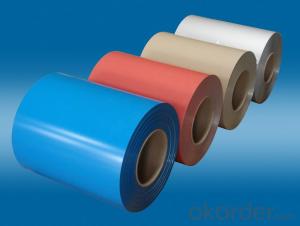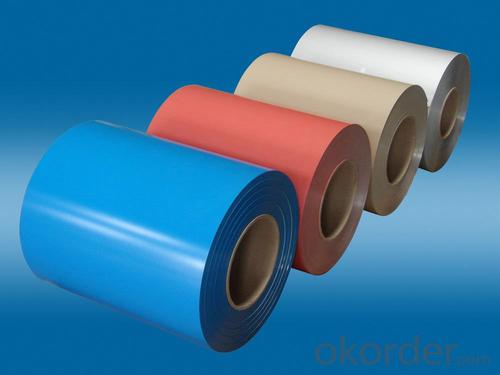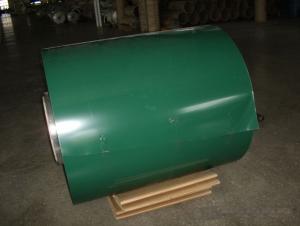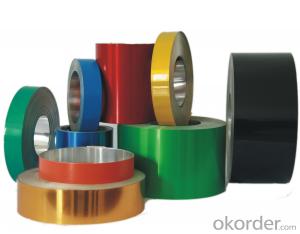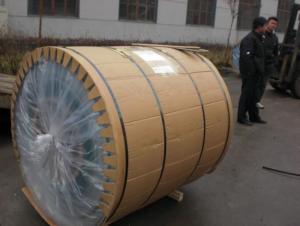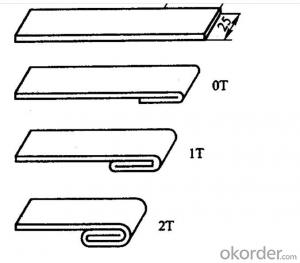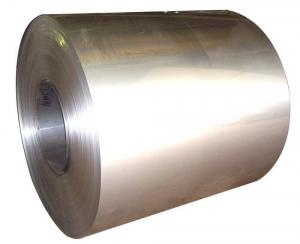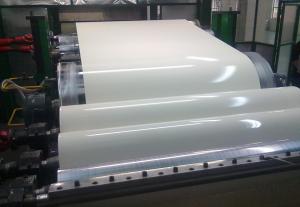Rolled Aluminum Coil for Aluminum Roofing Coated Sheet
- Loading Port:
- Shanghai
- Payment Terms:
- TT OR LC
- Min Order Qty:
- 5 m.t.
- Supply Capability:
- 2000 m.t./month
OKorder Service Pledge
OKorder Financial Service
You Might Also Like
Specification
Structure of Aluminium Coated Sheet for Aluminium Roofing Description:
Coated aluminum coil/sheet are of a wide range of colors, which gives wonderful appearance no matter in residential and commercial constructions of great exhibition centers.
The coated aluminum coil/sheet have been widely used in the fields of construction and decoration( garage doors, ceiling etc.), electronic appliances, lighting decoration, air-condition air pipes, sandwich panels and drainages etc.
Main Features of the Aluminium Coated Sheet for Aluminium Roofing:
1) High flexibility
2) Impact resistance
3) Excellent weather-proof durability
4) Anti-ultraviolet
5) High erosion resist
Images of the Aluminium Coated Sheet for Aluminium Roofing:
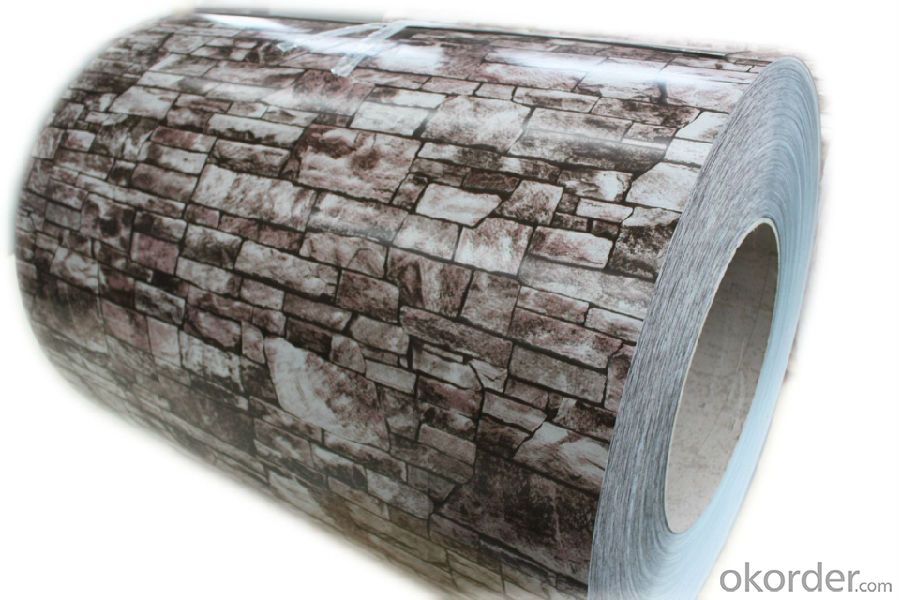
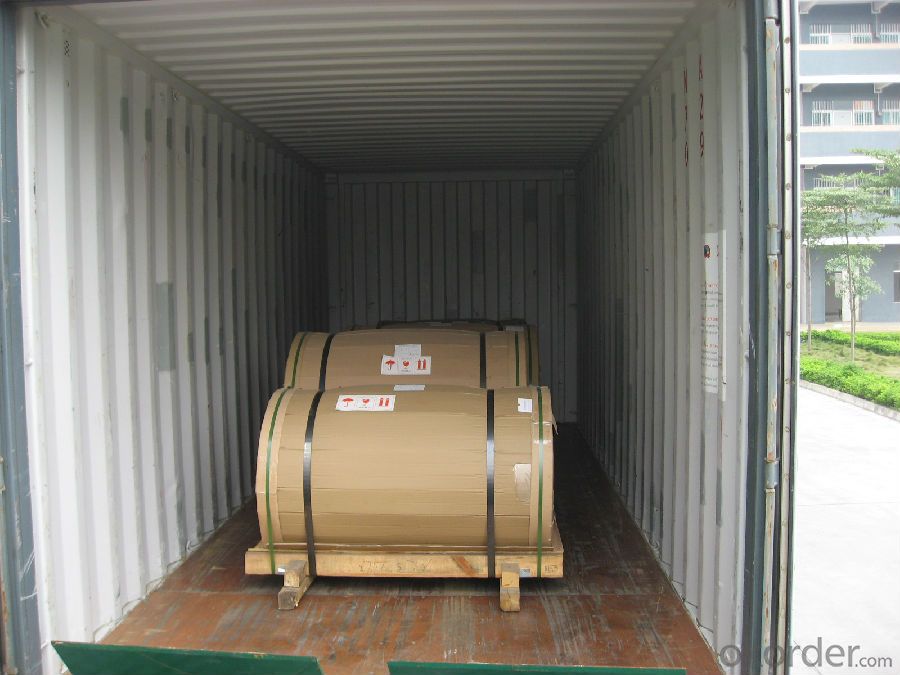
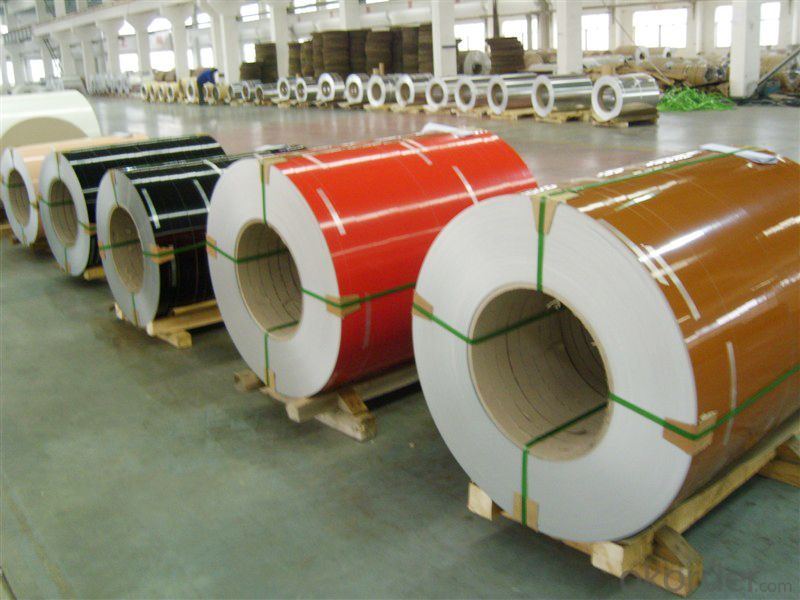
Aluminium Coated Sheet for Aluminium Roofing Specification:
Alloy | A1100,A3003,A1050,A8011 etc |
Temper | H16,H18,H24 |
Thickness | From 0.024mm to 1.2mm |
Width | Standard width:1240mm |
Special width:1300mm,1520mm,1570mm,1595mm | |
Diameter | Standard dia:1200mm |
Interior dia:150mm,405mm,505mm | |
Weight | 2.5 T/coil,3.0 T/coil |
Coating | PE, PVDF, AC |
Surface | Embossed, mill finish, coated |
Color | AS to code RAL |
Gloss | 10-90%(EN ISO-2813:1994) |
Coating Thickness | PE: more than 18 micron |
PVDF: more than 25 micron | |
Coating Hardness (pencil resistance) | More than 2h |
Coating adhesion | 5J(EN ISO-2409:1994) |
Impact Resistance | No peeling or cracking(50 kg/cm,ASTMD-2794:1993) |
Flexibility (T-bend) | 2T |
MEK resistance | More than 100 |
FAQ:
a.What is monthly capacity
---CNBM is one stated own company and our monthly capacity is about 2000tons.
b. Now which countries do you export your goods?
---Now we export to South East Asia,Africa, North America,South America ect.
- Q: How do aluminum coils contribute to lightweight transportation?
- Aluminum coils contribute to lightweight transportation by providing a lighter alternative to traditional materials like steel. Due to its low density and high strength-to-weight ratio, aluminum is used to manufacture various components in transportation vehicles, including coils for heating and cooling systems. The use of aluminum coils reduces the overall weight of the vehicle, resulting in improved fuel efficiency and reduced emissions.
- Q: Can aluminum coils be used in the production of consumer goods?
- Consumer goods production can indeed make use of aluminum coils. Aluminum, being a versatile and lightweight material, presents numerous benefits in the manufacturing of consumer goods. Its remarkable resistance to corrosion makes it particularly suitable for products that are exposed to moisture or outdoor conditions. Moreover, aluminum coils offer easy formability and shaping capabilities, enabling efficient production processes and customization. The utilization of aluminum is widespread in consumer goods like kitchen appliances, automotive components, packaging materials, and electronic devices. Manufacturers seeking to produce long-lasting and top-notch consumer goods find aluminum's properties to be an optimal choice.
- Q: Is aluminum veneer the same as color coated aluminum coil?
- In general, the molded product will be painted by special spraying factory according to customer’s needs. Color coated aluminum coil is more popular in ceiling.
- Q: My front door is scraping the aluminum frame door jam thing on the bottom. Also underneith the door itself it seems like there is a huge aluminum device covering the whole bottom of it and an aluminum weather stipper built into that. Is my only option to have the door pulled off. Or could I maybe grind of file down the aluminum on the bottom?
- You okorder / Best to do the right way, once you shave the bottom of the door there is no undo Hope it helps Lr
- Q: What is the difference between aluminum coils and aluminum sheets?
- Aluminum coils and aluminum sheets are both made from the same material, which is aluminum. However, there are some key differences between the two. One major difference is their form and shape. Aluminum coils are typically long, continuous pieces of aluminum that are wound into a coil shape. They are often used in industries such as construction, automotive, and HVAC for applications such as roofing, insulation, and air conditioning systems. On the other hand, aluminum sheets are flat pieces of aluminum that come in various sizes and thicknesses. They are commonly used in industries like aerospace, transportation, and packaging for applications such as aircraft parts, automotive body panels, and food packaging. Another difference is their manufacturing process. Aluminum coils are produced by a process called continuous casting, where molten aluminum is continuously poured into a mold and then cooled and solidified into a coil shape. This process allows for the production of long, continuous coils. Aluminum sheets, on the other hand, are typically produced through a rolling process. The aluminum is passed through a series of rollers that progressively reduce its thickness until the desired sheet thickness is achieved. This process allows for the production of flat sheets with specific thicknesses. Furthermore, the uses and applications of aluminum coils and sheets also differ. Due to their coil shape, aluminum coils are commonly used in applications that require long continuous lengths, such as roofing or HVAC systems. Aluminum sheets, with their flat shape, are often used in applications where a flat surface is needed, such as in the manufacturing of panels or components. In summary, the main difference between aluminum coils and aluminum sheets lies in their form, manufacturing process, and applications. Coils are long, continuous pieces of aluminum produced through continuous casting, while sheets are flat pieces produced through rolling. The choice between coils and sheets depends on the specific requirements of the application.
- Q: What is the corrosion resistance of aluminum coils?
- Aluminum coils have excellent corrosion resistance due to the formation of a protective oxide layer on their surface. This oxide layer acts as a barrier, preventing further corrosion and making aluminum coils highly resistant to various environmental conditions and corrosive elements.
- Q: Hi,I am fairly new to design and have been doing technical drawing for only a few months. We have an item, that supports up to about 800KG of weight, as a C shaped channel. We are currently making this out of 3mm Mild Steel. Due to a new design, we are changing this design to avoid welding and painting the above part. This means we will be making the part from Galv sheet.I would like to make the part from Aluminium because 1) There will be no rust, 2) I think it will look better than Galv sheet but I need to keep the cost down.We use 3mm mild at the moment, because it is easier to weld than 2mm, not for strength really.Therefore, my question is, in everybody's opinion, would it be OK to make it from 2mm Aluminium, or is this likly to end in disaster?FYI, the part is 1600mm long, then on each long side there are presses of up 250mm, down 80mm and down 20mm. The weight is supported at 4 points on the 80mm flanges.What a question for my first go Answers! TIA
- Aluminium needs to be 50% thicker than steel for the same strength.
- Q: Are aluminum coils resistant to chemicals?
- Yes, aluminum coils are generally resistant to chemicals. Aluminum has a natural oxide layer that forms on its surface, which provides a protective barrier against many chemicals. This oxide layer helps to prevent corrosion and degradation of the aluminum coils when exposed to different substances. However, it is important to note that some chemicals can still have an adverse effect on aluminum, particularly strong acids or alkalis. In such cases, additional protective coatings or treatments may be necessary to enhance the chemical resistance of the aluminum coils.
- Q: Are aluminum coils suitable for weather-resistant applications?
- Yes, aluminum coils are suitable for weather-resistant applications. Aluminum is known for its excellent corrosion resistance, making it a popular choice for outdoor and weather-exposed applications. The metal forms a protective oxide layer on its surface when exposed to air, which acts as a barrier against moisture, humidity, and other weather elements. This oxide layer helps prevent the metal from rusting or deteriorating over time. Additionally, aluminum's lightweight nature and high strength-to-weight ratio make it a practical choice for various weather-resistant applications, such as roofing, gutters, siding, and outdoor signage.
- Q: How are aluminum coils protected against corrosion during storage?
- Aluminum coils are protected against corrosion during storage through various methods such as applying a protective coating, using desiccants or moisture-absorbing materials, ensuring proper ventilation, and storing them in a dry and controlled environment to prevent exposure to moisture and other corrosive elements.
Send your message to us
Rolled Aluminum Coil for Aluminum Roofing Coated Sheet
- Loading Port:
- Shanghai
- Payment Terms:
- TT OR LC
- Min Order Qty:
- 5 m.t.
- Supply Capability:
- 2000 m.t./month
OKorder Service Pledge
OKorder Financial Service
Similar products
Hot products
Hot Searches
Related keywords
